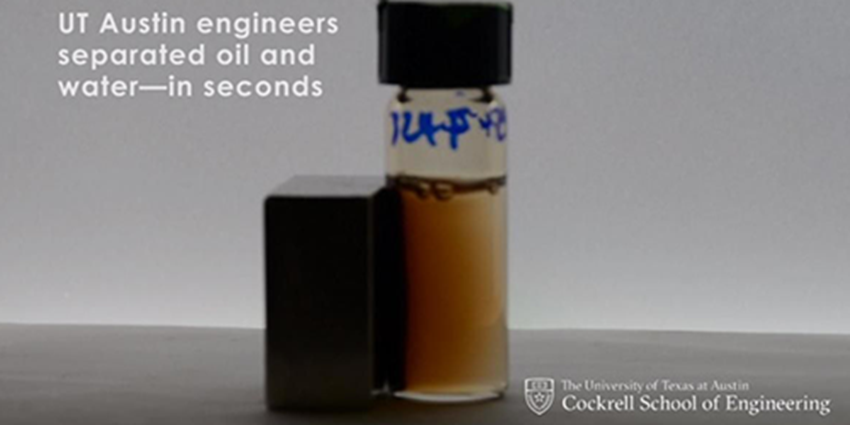When oil mixes with or enters into water, conventional methods of cleaning the water and removing the oil can be challenging, expensive and environmentally risky. But researchers in the Cockrell School of Engineering at The University of Texas at Austin (UT Austin) believe they may have developed a better method.
In a study published this spring in the Journal of Nanoparticle Research, the researchers used magnetic nanoparticles to separate oil from water through a simple process that relies on electrostatic force and a magnet. The engineers believe their new technique could improve water treatment for oil and gas production, more efficiently clean up oil spills and potentially remove lead from drinking water.
Today, nanoparticles, which are tiny particles that can be coated with different chemicals such as polymers, are used in a wide variety of areas and industries including medicine, energy and electronics. The versatility of nanoparticles inspired the UT Austin team to explore how the particles could be applied to oil production to lessen its environmental footprint and increase efficiency in both onshore and offshore drilling. The researchers believe their technique could also be used to treat the millions of gallons of fresh water used in hydraulic fracturing and to help clean drinking water.
Modern oil production methods separate 95 percent of the oil from produced water but leave behind small oil droplets that are difficult to extract, which makes water treatment and disposal more challenging and environmentally risky.
“This new technique is really aimed at removing that little bit of oil in that water that needs to be removed before you can consider it treated,” said Saebom Ko, a research associate in the Department of Petroleum and Geosystems Engineering and lead author on the study. “The advantage of employing magnetic nanoparticles is that the small oil droplets that attach to the nanoparticles are much more quickly separated from water than traditional physical separation processes because magnetic force can be orders of magnitude larger than gravitation.”
Continue reading at UT News, or read the full journal article.

